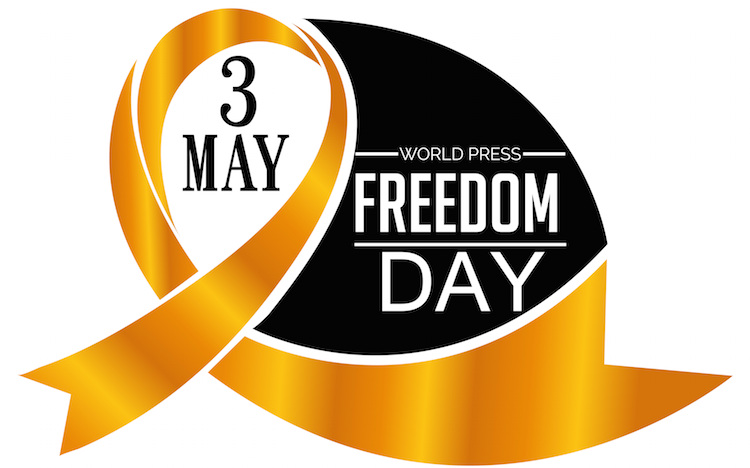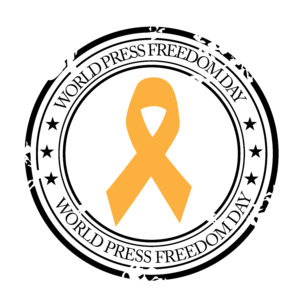World Press Freedom Day falls on Sunday, May 3rd and was established in 2004 in order to celebrate and protect Article 19 of the Universal Declaration of Rights which reads: “Everyone has the right to freedom of opinion and expression; this right includes freedom to hold opinions without interference and to seek, receive and impart information and ideas through any media and regardless of frontiers.” Below is a list of seven journalists who were murdered in their attempt to promote free discourse amidst the perils of political corruption, criminal reigns, civil unrest and needless war.
Guillermo Cano Isaza was shot and killed on December 17, 1986 in front of the El Espectador offices after publicly denouncing the Medellin Cartel’s violent influence over politics in Columbia. Cano, 61, was the heir of Fidel Cano Gutiérrez, the founder of El Espectador, and had worked for the newspaper as editor since he was twenty-seven. UNESCO has honored his legacy by “conferring the UNESCO/Guillermo Cano World Press Freedom Prize on a deserving individual, organization or institution that has made an outstanding contribution to the defense and/or promotion of press freedom anywhere in the world, especially when this has been achieved in the face of danger.”
James Wright Foley began his career with Teach For America before becoming a freelance journalist. Prior to his death he was captured by pro-Gaddafi forces in Libya and held for 44 days before his release. He was beheaded by ISIS militants in Syria last August after being kidnapped in November of 2012. He was kept in a cell with seventeen other hostages. While in captivity, he wrote several letters to his family which were subsequently confiscated by his captors. He asked fellow captive Daniel Rye Ottosen to commit his last letter to memory and this can be read on www.freejamesfoley.org
Lasantha Wickrematunge was the founder of Sri Lanka’s Sunday Leader newspaper. He worked as a lawyer before becoming a journalist. He was so vocal an opponent against the corruption he saw under President Mahinda Rajapaksa’s rule that his first wife moved to Australia in order to ensure the safety of their three children. Lasantha and his wife were attacked in 1995 and received constant death threats throughout his career. On the morning of January 8th, 2009 four men riding motorcycles opened fire on Lasantha as he drove to work. The same year, he was posthumously awarded the UNESCO/Guillermo Cano World Press Freedom Prize. This article was published three days after he was killed in Colombo.
Francisco Ortiz Franco was a Mexican journalist, who, like Lasnatha Wickrematunge, trained as a lawyer before contributing to the establishment of a journal named Zeta in 1980. While Zeta‘s reporters had written about corruption and organized crime since its inception, Franco’s stories on drug trafficking in the early 2000s were so dangerous for the paper to run that the editor asked Franco’s permission to remove the byline, though Franco adamantly refused it. On June 22nd, 2004, masked gunmen shot and killed Franco in front of his two children as they left a midday doctor’s appointment. His murderers were subsequently linked to the Tijuana Cartel. Read more: Tijuana Murderer
Martin O’Hagan ran guns for the IRA in the 70’s prior to becoming a well-respected journalist and major opponent of loyalist violence. At the time he began his career, Unionist/Loyalist tensions had been brewing in Ireland for over a decade. O’Hagan wrote several exposés on sectarian groups in addition to exploring the double standards flooding Protestant society. In 1989 he was abducted and interrogated by members of the IRA and released unharmed. Nearly a decade after his abduction, Martin was shot on September 28th, 2001 as he and his wife were walking back from a pub, just steps away from their house. His wife and three daughters survived him. Read more: No Prosecution for O’Hagan’s Murderer
Viktor Popkov was a Russian journalist and human rights activist who documented the horrors running rampant in the dwindling days of the Soviet Union and subsequent wars in Chechnya. Prior to his death, Popkov had been detained several times by Chechen security forces for spurious reasons. He was killed when his ambulance was ambushed en route to deliver aid to wounded Chechen civilians. Islamic Fundamentalists were believed to be responsible. Read more: Google Books “Blessed Peacemakers”
Samir Kassir earned his PhD from the Université de Paris IV and later taught Political Science in Beirut, where he was born. He wrote several books detailing the history of Beirut and civil war in Lebanon. Kassir also wrote for a daily newspaper named Al-Nahar and was highly critical of the pro-Syrian government in addition to being a strong champion for Palestinian freedom. On June 2nd, 2005, he was assassinated by a car bomb. His murder was widely believed to have been perpetrated by Lebanese/Syrian Security Forces. Learn more: Samir Kassir Foundation
It goes without saying that these are only a handful of the journalists throughout history who were assassinated for their courageous work. So far, 2015 has seen the deaths of 24 reporters and the number of unjustly imprisoned journalists is ever on the rise. If you would like to contribute to the safety of reporters worldwide, please visit Reporters Without Borders.
ABOUT THE WRITER
 Stephanie Kasheta is a graduate of the University of Nevada Las Vegas, where she majored in English with an emphasis in Creative Writing. She is currently finishing up her MFA in Fiction at Emerson College in Boston. She is a Las Vegas native who recently relocated to Cape Cod with her husband, a veteran of the US Air Force. Stephanie is also step-mother to a seven-year old future writer named Olivia. When not reading or daydreaming of travel abroad, she can be found blowing glass at the Sandwich Glass Museum or working on her short story collection. Follow her on Twitter
Stephanie Kasheta is a graduate of the University of Nevada Las Vegas, where she majored in English with an emphasis in Creative Writing. She is currently finishing up her MFA in Fiction at Emerson College in Boston. She is a Las Vegas native who recently relocated to Cape Cod with her husband, a veteran of the US Air Force. Stephanie is also step-mother to a seven-year old future writer named Olivia. When not reading or daydreaming of travel abroad, she can be found blowing glass at the Sandwich Glass Museum or working on her short story collection. Follow her on TwitterImage of World Press Freedom Day via Shutterstock




